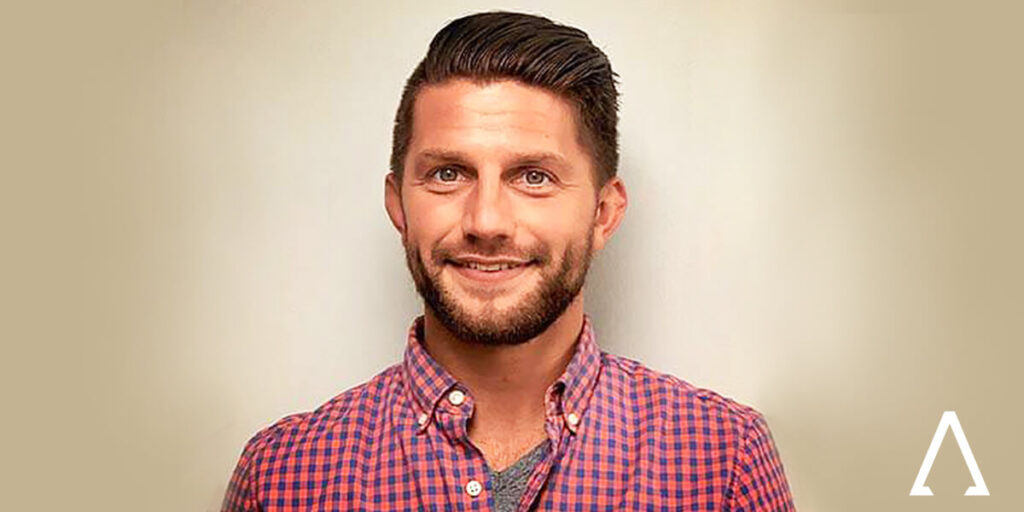[vc_row][vc_column][vc_column_text]Dan Cotter is the Outreach Coordinator for Blueprint Recovery Center in Concord, New Hampshire. Growing up in a suburb of Boston, Cotter says he had a happy upbringing. He had two older sisters; his parents are still together; there were no issues in his family with drugs and alcohol. Yet.
“If you could put a story together of an ideal childhood, that’s me,” he said. “There is nothing about my history that says I would grow up and become a drug addict and alcoholic.”
Cotter began experimenting with drugs and alcohol when he was a teenager. He liked the effects they produced for his mind and body. He felt cooler and less anxious around others.
After graduating high school, Cotter enrolled in college and played soccer. During the on season he was able to keep his drug and alcohol use to a minimum. In the offseason, though, he used more heavily. After college he moved back to Boston, taking a job in the financial district.
“It was a mini ‘Wolf of Wall Street’ kind of thing,” he said. “Work hard, play hard. The difference was the other guys could stop and I couldn’t. I got involved in opiates. Whether or not I was high determined everything. If I showed up to work on time, whether I was present at family events, everything.”
Cotter sought treatment between 10 and 12 times, not experiencing much success with sobriety. His surrender came only after more and more pain. He lost his job and was arrested, kicked out of his home, and residing in his car.
“I made a phone call and asked for help and made it into a medical detox,” he said. “I had no resources, no opportunities, but I was granted a scholarship to live in a sober living house in Manchester, New Hampshire.”
In Manchester, things began to look up for Cotter. Both new and old connections he made in recovery were beginning to blossom. After putting together some sober time, Cotter was told about a position at Blueprint from an old friend, Tim Henault. Henault is the Director of Operations at Blueprint, and years before lived with Cotter in a sober living home.
Now, as an Outreach Coordinator, Cotter blends two areas of his life: work experience in sales, and sobriety related skills. He tells his story to potential Blueprint clients and their families.
“All I do, it’s not rocket science, is speak about my experience,” he said. “It’s all experience. That’s what I go on. I talk to a lot of people that are actively in it. Struggling and at absolute rock bottom.”
Cotter believes that Blueprint stands out because of the culture of the staff, who know when to comfort clients as well as when to be strict.
“I wish I could’ve gone to Blueprint,” he said. “It’s the people that make it. The people telling me the truth. That’s what I’ve experienced as an employee, but also with the clients. It’s a good balance of holding your hand when you need it, but also tough love. We tell the truth.”
When asked what the most rewarding part of his job is, Cotter said the answer is two-fold.
“There’s the families,” he said. “I am very close to my family. I’m the baby boy with two older sisters. Being able to give back to them is great. They are happy to see me; they are happy to have me around. All the trauma they went through is all worth it in the end.”
The other part is seeing a client graduate the program and come back to the center to volunteer, helping the next client.
“They’re genuinely trying to help another person because someone did that for them,” he said. “You can’t buy that in a store.”
Most importantly, Cotter hopes that each interaction he has with potential clients plants the seeds of a life in recovery, even if they don’t attend the program at Blueprint. There’s a way out, he tells them.
“I didn’t believe there was. I thought this was my life,” he said. “If I had known back then that I would feel the way I do now, I would have done this a long time ago. It’ll be okay.”[/vc_column_text][/vc_column][/vc_row]








